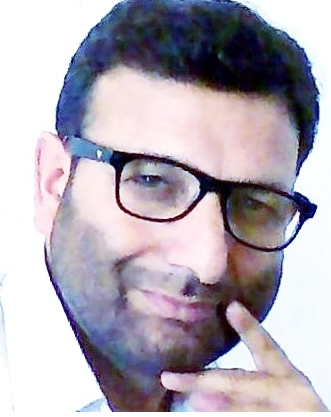PERSPECTIVE
In today’s hyper-connected world, we see a quiet but profound change in how we engage with the written word. What was once a lovable culture built on the immersive experience of reading is being replaced by a pattern of fast, fragmented, and superficial consumption. This shift is not merely a change in habits—it is an alteration in how we think, feel, and understand the world around us.
We are witnessing a shift from a culture of deep reading to one of superficial scanning. The once-dominant printed word has ceded ground to digital content, yet even online, the trend is towards rapid consumption and fleeting engagement. Social media platforms, while initially appearing to foster a new kind of literacy through sharing and commenting, are increasingly characterized by quick glances and emotional reactions rather than thoughtful assimilation of information.
Today, attention is a scarce commodity and a fast losing trait. People no longer read content online or so —they glance at it. The constant scroll of social media has created a culture of quick consumption, where patience for long or deeply layered content is rapidly diminishing. Posts are skimmed, videos are skipped, and messages are half-read before the user moves on. If people are not actively reading, where will the next generation of ideas originate? How will we foster the new vision necessary to shape our mental and social landscapes? Without the rigorous intellectual exercise that reading provides, we risk a future marked by:
Shallow Understanding
Complex understanding of varied subjects and themes require individuals to engage with dense, nuanced, and sometimes contradictory information. Reading in-depth, especially long-form journalism, academic texts, or analytical books, develops the cognitive capacity to connect historical context, ethical considerations, and contemporary dynamics. Without this habit, understanding becomes piecemeal and reactive, often shaped by headlines, memes, or social media snippets. This superficial grasp of issues undermines informed civic engagement, weakens democratic discourse, and impairs effective problem-solving at both individual and collective levels.
Echo Chambers and Polarization
Deep and diverse reading habits encourage people to step outside their cognitive zones and engage with unfamiliar or opposing viewpoints. Books and articles by authors from different cultures, ideologies, or disciplines serve as intellectual bridges, helping individuals re-evaluate their beliefs and assumptions. In contrast, when people stop reading and rely mainly on algorithm-driven content, they become trapped in ideological echo chambers. This narrows their worldview, intensifies confirmation bias, and generally fosters polarization.
Decline in Critical Thinking
Critical thinking—the capacity to assess claims, analyze sources, detect logical fallacies, and synthesize diverse ideas—is not innate; it is cultivated through regular engagement with complex texts. Reading diverse genres, including philosophy, history, literature, and science, trains the brain to pause, reflect, and question. A society that reads less tends to accept information at face value, becoming more vulnerable to misinformation, propaganda, and manipulation.
Stagnation of Innovation
Innovation thrives at the intersection of different ideas, disciplines, and perspectives. Reading fuels the imagination by exposing individuals to new concepts, historical analogies, and speculative futures. For instance, many scientific breakthroughs and entrepreneurial ventures have been inspired by science fiction or philosophical treatises. When reading declines, the creative reservoirs from which innovators draw also dry up, leading to incremental rather than transformative progress.
Erosion of Empathy
Reading is one of the most powerful tools for developing empathy. Novels, memoirs, and particularly biographies immerse readers in the lived experiences of others—be it the trauma of war, the intricacies of identity, or the challenges of poverty or some individual crisis. This emotional and psychological immersion cultivates compassion and a broader sense of shared humanity. Without reading, individuals may grow more insular, judgmental, and indifferent to the suffering of others, weakening the social fabric and contributing to apathy and intolerance.
Loss of Cultural and Historical Continuity
Books are repositories of collective memory and cultural identity. They preserve the insights, values, and narratives of past generations. Reading allows individuals to engage with their heritage, understand civilizational legacies, and learn from past successes and mistakes. When reading habits decline, there is a risk of cultural amnesia—a society forgetting its roots, misinterpreting its history, and losing the wisdom accumulated over centuries. This loss weakens national identity and impedes the capacity to build a better future on the foundation of hard-won knowledge.
Reduced Attention Span and Cognitive Patience
Books demand sustained focus and delayed gratification. They train the brain to follow arguments, develop patience with complexity, and resist the urge for instant answers. Digital media, in contrast, often promotes quick consumption, multitasking, and fleeting engagement. The decline in reading contributes to shrinking attention spans and intolerance for ambiguity or sustained effort. This erosion of cognitive stamina has implications not just for learning, but for work productivity, personal relationships, and mental well-being.
Conclusion
This shift raises an important question: Do we need new, briefer writing styles, or are we misunderstanding how modern readers engage? The answer lies somewhere in between. Yes, digital content often needs to be crisp, visually engaging, and instantly meaningful. But this doesn’t mean abandoning depth—it means delivering depth more intelligently. The challenge for writers today is to hook readers fast, then offer substance for those willing to stay.
Clear structure, bold key points, and layered content that invites curiosity can bridge this divide. Ultimately, it’s not just a failure of writing, but a broader change in attention habits. To connect meaningfully, we must adapt—not by diluting our message, but by refining our method.
(The author is a regular columnist of Rising Kashmir and can be reached at: [email protected])







